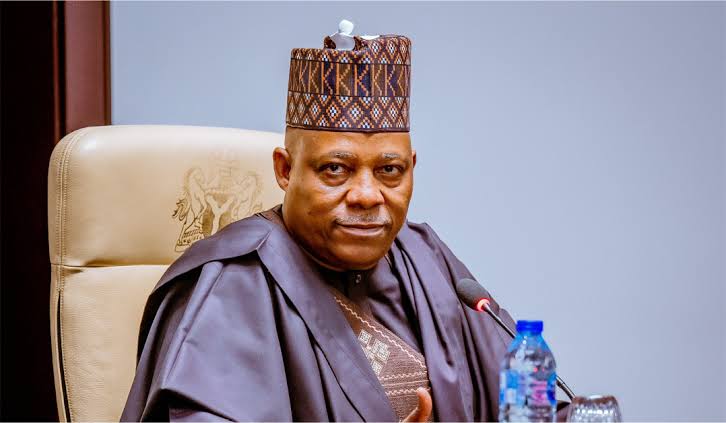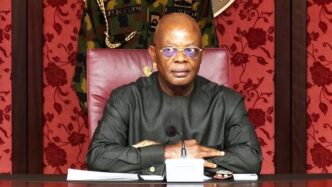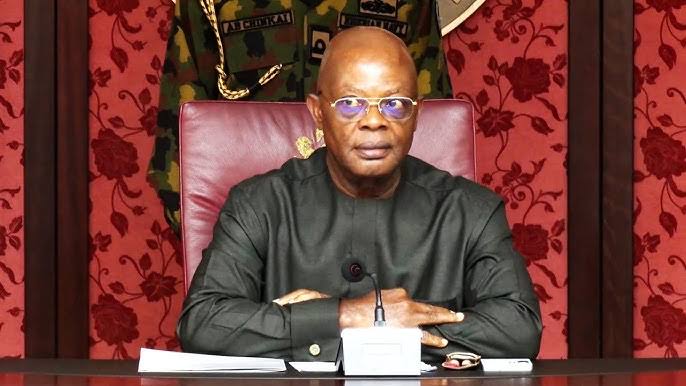Vice-President Kashim Shettima has said Nigeria’s challenges stem from a lack of collective fiscal responsibility.
Gatekeepers News reports that Shettima made the statement while speaking on Tuesday at Leadership Newspaper’s annual conference and awards at the State House in Abuja.
According to him; the problems of Nigeria’s federal system are due to poor management of resources, not from any inherent flaw in the constitutional architecture.
Shettima said the country’s challenge “lies less in the structure of our federalism and more in the deficit of our collective fiscal responsibility.”
He said the issue is not how much revenue each federating unit receives, but how effectively those resources are utilized.
The vice president said the issue is not merely how much each federating unit accrues, but how such resources are utilised.
Shettima added that President Bola Ahmed Tinubu’s administration is addressing this challenge directly through reforms.
He said, “We have chosen the path of reform. It is bold, often difficult, but necessary.”
“To those who argue that Nigeria’s federalism is fundamentally flawed because of its fiscal nature, l urge caution. Federalism, as practiced around the world, is not a one-size-fits-all system. There is no universal template. Each country’s federal arrangement is shaped by its history, culture, and political experience.”
Citing countries like Canada, Germany, and Spain as countries where federalism is been practiced, Shettima noted no federal system is perfect and each country’s arrangement is shaped by its history, culture, and political experience.
Shettima urged caution against romanticising foreign systems or prescribing imported solutions that fail to account for Nigeria’s distinct social, ethnic, and demographic complexities.
He said, “What we seek, therefore, is not a photocopy of another country’s model, but a federal structure tailored to our aspirations. It must reflect our values, ensure accountability, and foster development at all levels.”
“The only road to such a destination is through sincere dialogue, and this conference is a laudable example.”
“The policy choices pursued by this administration-from the removal of fuel subsidies to the introduction of tax reform bills-are aimed not only at guaranteeing a fiscally responsible federation but also at creating a system that offers each state both increased allocations and the opportunity to participate in debates and reforms for long-term fiscal stability.”
Shettima said the greatest threats to Nigeria’s progress have stemmed from the mismanagement of resources and corruption.
He added that what matters most to everyday Nigerians is not the abstract theory of federalism, but whether governance delivers necessities like water, electricity, schools, roads, and hospitals.









